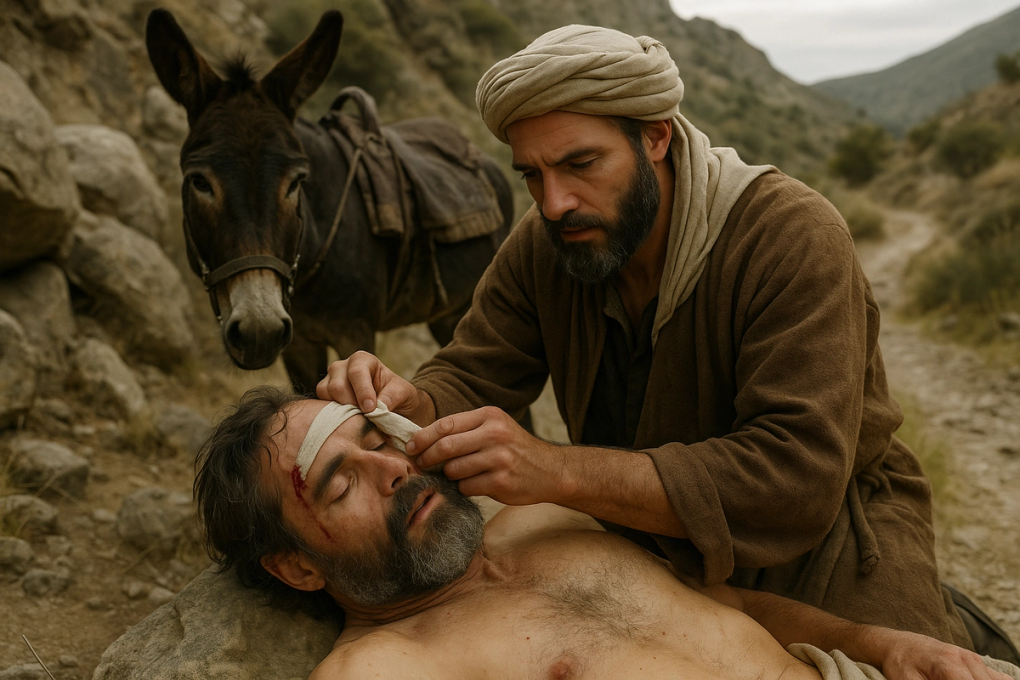
Daily Devotional Series: Don’t Just Flee—Love
How often does the path of least resistance lead you where you truly desire to go?
It seems the classic question—“Where do you see yourself in five, ten, or twenty years?”—rarely elicits a response that assumes ease. Unless someone is dishonest, the answer typically includes great effort, sacrifice, and long-term investment. The most meaningful destinations are rarely reached by the simplest roads.
The same is true of our sanctification.
For the Christian, the goal of this life is to spend eternity with Christ—worshiping Him, enjoying Him, and seeing Him in all His glory. Our journey toward that goal is the lifelong process of becoming more like Jesus. This is God's will for every believer, as Paul writes in 1 Thessalonians 4:3: “For this is the will of God, your sanctification.”
If you belong to Christ, you’ve been called to this path. God has ordained that you be conformed to the image of His Son. And while His grace guarantees the outcome, we are not passive participants. Our daily choices shape our path—some draw us closer to Christ; others delay our growth.
Thankfully, God, in His mercy, has made the way of sanctification clear. And He has also warned us of the dangers that threaten it.
After proclaiming God's will for our sanctification, Paul immediately offers a command of abstention: “that you abstain from sexual immorality” (1 Thessalonians 4:3b). It may seem surprising that the pursuit of sanctification begins with a warning, but it makes sense when we consider how powerfully sin disrupts spiritual growth.
Sexual immorality is not just another sin—it’s a chief symbol of the unrestrained life. It represents a surrender to fleshly passions that oppose the Spirit. To give in to impurity is to reject the very purity that sanctification requires. It is antithetical to the holiness and honor God desires to cultivate in His people.
So sanctification is not merely the product of spiritual disciplines and right actions—it is also the active refusal to indulge the flesh.
But this is not where the story ends. Avoiding sin is not the standard of righteousness. If it were, the sinlessness of Christ’s life would have been sufficient without the cross. But Christ’s righteousness was not just in what He avoided—it was in what He gave. “God shows his love for us in that while we were still sinners, Christ died for us” (Romans 5:8). Jesus fulfilled the will of the Father through both the omission of sin and the commission of self-giving love.
And Paul follows the same pattern. After his exhortation to abstain from sexual immorality, he immediately commends the Thessalonians:
“Now concerning brotherly love you have no need for anyone to write to you, for you yourselves have been taught by God to love one another.” (1 Thessalonians 4:9)
Love is the path to eternal life.
Jesus made this clear when a lawyer asked Him, “Teacher, what shall I do to inherit eternal life?” Jesus replied, “What is written in the Law?” The answer:
“You shall love the Lord your God with all your heart and with all your soul and with all your strength and with all your mind, and your neighbor as yourself.” (Luke 10:27)
Loving our neighbor is not optional or secondary—it is essential to sanctification. We love God by obeying His commands, which include abstaining from sexual immorality, and we love Him by loving those made in His image.
And here’s the profound connection: these two commands work together. The more deeply we love our neighbor, the harder it becomes to objectify them. The more we see others as image-bearers of God, the less power lust has over us. It is difficult to abuse what you have learned to honor. Difficult to desire impurity for someone you desire to see flourish in holiness.
So let me offer this to you, if you're struggling to walk in purity: your freedom may not come from white-knuckled discipline alone. The iron-willed, abstinence-only strategy may have its place—but perhaps the deeper antidote lies in cultivating a sincere love for the neighbor God has placed before you. Even the one at the center of your current temptation.
How do you grow in that kind of love?
Jesus shows us in the parable of the Good Samaritan. Love sees need. It does not ask, “What is safest for me?” but “What is best for them?” The Samaritan bound wounds, secured transport, and paid for rest. His love was specific and sacrificial. It was rooted in compassion and mercy.
So as you pursue holiness—as you strive for purity in the process of sanctification—look to your neighbor with that same kind of love. Ask what they need. Show them dignity. Remember whose image they bear.
And watch as the chains of sin begin to loosen—not by the might of your resolve, but by the resurrection power of the One who calls the dead to life.